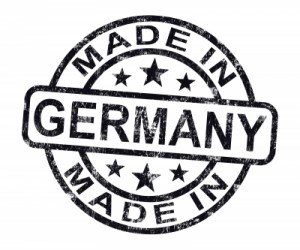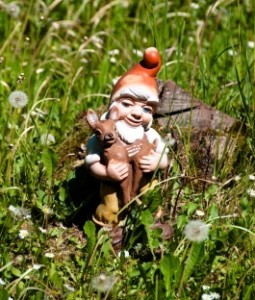 As well as enabling me to practise my rusty German, a recent trip to Berlin got me thinking about the various German words and phrases that have infiltrated everyday English vocabulary.
As well as enabling me to practise my rusty German, a recent trip to Berlin got me thinking about the various German words and phrases that have infiltrated everyday English vocabulary.
Although I thought there were more French words used in English than German words, I was surprised by just how many of the words that we commonly use have German origins – even if the spelling has sometimes changed during the transition.
Food and drink
Food and drink are a prominent part of German culture, so it’s not surprising that a lot of the German words we’ve ‘adopted’ are related to eating and drinking. Some of the most popular ones are:
delicatessen = shop selling prepared cooked meats, cheeses and other fine food
frankfurter = hot dog, a cooked sausage traditionally served in a sliced bun (originated in Frankfurt)
 lager = beer made with bottom-fermenting yeast and stored for some time before serving (from the German word for storage)
lager = beer made with bottom-fermenting yeast and stored for some time before serving (from the German word for storage)
noodle = string of pasta (entered the English language in late 18th century via the German word Nudel)
sauerkraut = fermented, finely cut cabbage
spritzer = chilled drink from white wine and soda water
Academia and science
Over the centuries, Germany has produced various internationally famous scientists, writers and philosophers. Consequently, several German words from these fields have become universally recognised and used in English, such as:
Alzheimer’s = brain disease named after the German neurologist Alois Alzheimer, who first identified it in 1906
angst = neurotic feeling of anxiety and depression
Fahrenheit = named after its German inventor, Daniel Gabriel Fahrenheit, who invented the alcohol thermometer in 1709
schadenfreude = malicious satisfaction obtained from the misfortunes of others
zeitgeist = spirit of the times or age
Military
No article about words borrowed from German is complete without acknowledging the linguistic legacy of WWI and WWII. These recent borrowings include loanwords like:
blitzkrieg = intense military campaign intended to bring about a swift (i.e. as fast as lightning) victory
Führer = originally used to refer to Hitler, this is now used to describe any tyrannical leader
Kaiser = emperor (derived from the title Caesar)
Everyday German words
abseil = from the German verb sich abseilen, meaning to rope oneself down
dachshund = fondly known as the “German sausage dog” because of its elongated shape
diesel = diesel engine was invented by Rudolf Diesel (1858-1913)
doppelganger = double or lookalike of a person, often with a ghostly connotation
ersatz = replacement or substitute, usually inferior to the original
 fest = festival, celebration or party, as in film fest or beer fest
fest = festival, celebration or party, as in film fest or beer fest
Gesundheit (lit. health) = exclamation in place of “Bless you!” after someone sneezes
kindergarten (lit. children’s garden) = playschool, preschool
kitsch = cheap, sentimental or gaudy items of popular culture
poltergeist (lit. noisy ghost) = alleged paranormal phenomenon where objects appear to move of their own accord
rucksack = backpack
wanderlust = yearning to travel
wunderkind (lit. wonder child) = child prodigy
Over to you
This is, in fact, just a small selection of German words in English. Have I missed out your favourite? If so, please let me know in the comments below. Vielen Dank!
(images courtesy of Stuart Miles, Pixomar and franky242 at FreeDigitalPhotos.net)
Lots of thanks, it was very important to me to hear your “native” opinion 🙂
I’m glad you found it interesting! I guess I say “Gesundheit” more often than non-German speakers do, but it is fairly widely understood over here.
Thank you very much for this informative blog! “Gesundheit” is my favourite 🙂 Do you often use it in everyday life?